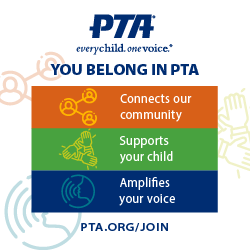The ACT is one of the best ways to help your child prepare and plan for their future. Taking the ACT as a junior in high school gives your student an idea about their readiness for college coursework by showing them where they have strengths, and where there are opportunities for improvement.
- Identify interests. The ACT provides your student with a unique Interest Inventory. By answering questions about their interests, courses, and educational preferences, they can provide colleges with a unique profile of their work in high school, career interests and higher education goals.
- Get noticed. The ACT helps colleges find your student. By taking the ACT, they can opt-in to the free ACT Educational Opportunity Service (EOS) and make themselves visible to colleges and scholarship agencies—a great way to get a powerful head start on their post-high school journey!
When Should My Student Take the ACT?
Spring, Junior Year
Your student’s junior year is the ideal time for a first attempt at the ACT. Once they receive their score report they’ll gain valuable insights on their strengths, areas for improvement, and will have ample time for additional prep and retesting to put their best foot forward.
- Perfect Timing. By 11th grade, the vast majority of students have completed the classroom coursework reflected on the test. The ACT is not—and has never been—an aptitude or IQ test. The questions on the ACT are directly based on the standards supporting the curriculum your child is learning in high school English, mathematics, reading and science courses.
- Be Informed. Students can use their test scores to inform the classes they’ll take during their senior year. If they score low in a particular subject, they’ll have time to schedule additional coursework, learn and improve in that area, then boost their score by retesting.
- Colleges Come to you. If your student opts-in to EOS, colleges will know your student’s interests and scores and will have time to contact them during the summer before their senior year. Many colleges send information about admission, advanced placement, scholarships and special programs to prospective students during this time.
- Focus on the Future. Students will have information about themselves and the schools they’re interested in attending before visiting schools, helping them focus on what matters most during their campus visits.
- Get Dialed In. Your student will have a chance to retest if they feel their scores and their GPA are out of synch.
How Should My Student Prepare to Take the ACT?
Your Student is Prepping Right Now

Every day your student attends class they are preparing for the ACT. The more of their coursework they master, the more prepared they will be for the test and college courses.
- Free Study Resources. ACT provides free test preparation options including online practice tests, testing tips for each subject area, and the free student booklet Preparing for the ACT. This booklet includes complete practice tests (with a sample writing prompt and example essays).
- Official ACT Test Prep Options. ACT also offers official test prep options delivered by experts, designed to fit their study preferences and budget.
How Do I Know If My Student Should Retest?
Most Students Improve
ACT research shows that the majority of students who took the test more than once increased their ACT composite score. Moreover, ACT will calculate and report an ACT Superscore for students who have taken the ACT test more than once. A composite score is the average of the four subject scores from one ACT test attempt, but a superscore is the average of the best scores from each subject from multiple test attempts. A superscore is never lower than a single composite score. Learn more about superscoring here.
- Due Diligence. Look at the requirements for the colleges your student is interested in applying to. Do their current scores meet college expectations?
- Put Your Best Foot Forward. Your student could increase their chances of getting into their top college pick, certain programs like engineering and nursing, and qualifying for scholarships if they raised their score, even by a single point.
- Know Where to Grow. Test scores inform students where they need to focus to improve their score and college readiness.
- Experience is the Best Practice. A great way to improve test scores is to test again before the start of senior year. The format of the test, the types of questions on it, and the testing environment will be fresh in student minds.
Next Steps
MyACT.org and Register!
The ACT is so much more than just a test. True, it is one of the very best ways for students to show schools they’re ready for the rigors of college coursework, but it also helps them dial into their interests and gives students insight into potential career paths.
- Visit ACT.org/Register to create your free MyACT account.
- Grab your free test prep materials.
- Pick a test date! Select a test date that works best for your schedule, typically at least two months ahead of application deadlines for the colleges and scholarship agencies your student might want to apply to. ACT scores are normally reported within two to eight weeks after the test date.
ACT Inc. is a non-profit committed to success for absolutely everyone. Providing registration fee waivers, a wealth of free college planning and test preparation resources to help students and families navigate the complexities of the high school to college transition is central to their mission. To learn more about how ACT can power your child’s future, visit ACT.org.


















